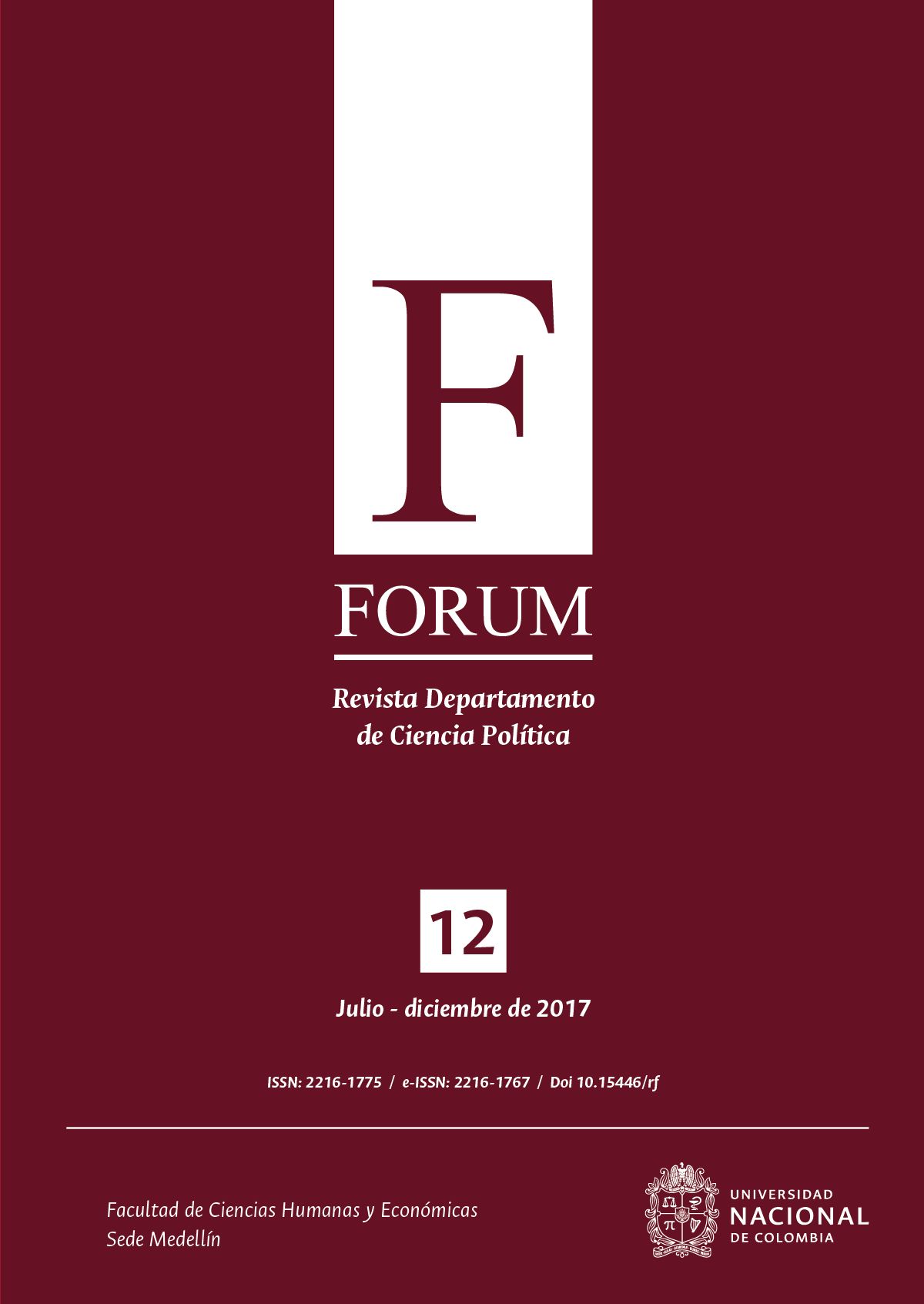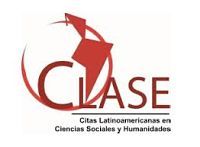El auge del narcotráfico en Haití y la guerra (fallida) contra las drogas
The Rise of Drug Trafficking in Haiti and the (failed) War on Drugs
Keywords:
Haití, Estados Unidos, Caribe, narcotráfico, política, siglo XX (es)Haiti, United States, Caribbean, drug traffic, policy, 20th century (en)
Downloads
El narcotráfi co en Haití comenzó a detectarse en la década de 1970 bajo el régimen dictatorial de Jean Claude Duvalier y fue pasado por alto por Estados Unidos. Con el transcurso de los años pudo constatarse que podía ser utilizado como un elemento desestabilizador para señalar a un presidente democráticamente electo; de tal suerte que la guerra contra las drogas “llegó” a Haití cuando Jean Bertrand Aristide ocupó la presidencia de la República por primera vez en 1991, porque a raíz de ello se aplicaron los criterios estadounidenses de preservación de la seguridad nacional, al considerarse este país como una amenaza. El narcotráfi co ha aumentado debido a la debilidad de las instituciones, la inestabilidad política, la corrupción, la supeditación a las directrices estadounidenses y la falta de autonomía.
Drug trafficking in Haiti began to be detected in the 1970s under the dictatorial regime of Jean Claude Duvalier and was overlooked by the United States. Over the years, it became clear that drug trafficking could be used as a destabilizing element to finger point a democratically elected president; it so happened that the war on drugs “arrived” in Haiti when Jean Bertrand Aristide became President of the Republic for the first time in 1991, which resulted in the implementation of US criteria for preserving national security, since the country was considered a threat. Drug trafficking has increased due to weak institutions, political instability, corruption, dependence on US guidelines, and lack of autonomy.
References
Aristide Book Revealed Major Oil and Natural Gas Deposits in Haiti (11 de marzo de 2011). Press Core, recuperado de http://presscore.ca/?p=1476
Bellegarde-Smith, P. (1988). Testimonio. En House of Representatives, Subcommittee on Western Hemisphere Affairs of the Committee on Foreign Affairs. The Political Crisis in Haiti, Hearing, 100th Congress, 2nd session, 8 y 23 de marzo de 1988 (pp. 8-21). Washington: United States Government Printing Office.
Griffith, I. L. (1998). The Geography of Drug Trafficking in the Caribbean. En M. C. Desch, J. I. Domínguez y A. Serbín (Ed.), From Pirates to Drug Lords: The Post-Cold War Caribbean Security Environment (pp. 97-119). New York: State University of New York Press.
Haití: quién es Jovenel Moïse, “el hombre banana” que será presidente del país más pobre de América y tuvo que ganar dos veces las elecciones para ser declarado vencedor (4 de enero de 2017). BBC Mundo, recuperado de http://www.bbc.com/mundo/noticias-america-latina-38504158
Hallward, P. (2010). Damming the Flood. Haiti and the Politics of Containment. London: Verso.
House of Representatives, Committee on Foreign Affairs. (1988a). Narcotics Review in the Caribbean, Hearing, 100th Congress, 2nd Session, 9 de marzo de 1988. Washington: United States Government Printing Office.
House of Representatives, Subcommittee on Western Hemisphere Affairs of the Committee on Foreign Affairs. (1988b). The Political Crisis in Haiti, Hearing, 100th Congress, 2nd session, 8 y 23 de marzo de 1988. Washington: United States Government Printing Office.
House of Representatives, Subcommittee on Crime of the Committee of the Judiciary. (1984). Drug Production and Trafficking in Latin America and the Caribbean, Hearing, 98th Congress, 1st session, 12 de mayo de 1983. Washington: United States Government Printing Office.
Ives, K. (2011). “Mafia boss... Drug dealer... Poster-boy for political corruption”: WikiLeaked U.S. Embassy Cables Portray Senator Youri Latortue. Haiti Liberte, 50 (4), recuperado de https://www.canadahaitiaction.ca/content/wikileaks-%E2%80%9Cmafia-boss-drug-dealer-poster-boy-political-corruption%E2%80%9D-wikileaked-us-embassy-cab
Jaramillo Edwards, I. (1988). Variantes intervencionistas en la “Cuenca del Caribe”. En G.Pierre-Charles (Comp.), Capital trasnacional y trabajo en el Caribe (pp. 263-281). México: Plaza y Valdés – Universidad Nacional Autónoma de México – Instituto de Investigaciones
Sociales.
Notimex. (14 de septiembre de 2015). Obama revela lista de principales países productores de drogas. Excélsior, recuperado de http://www.excelsior.com.mx/global/2015/09/14/1045761
Pandillas juveniles involucradas en el tráfico de drogas (17 de marzo de 2005). Red Voltaire, recuperado de http://www.voltairenet.org/article124261.html
Pierre-Charles, G. (1987). El Caribe contemporáneo. México: Siglo XXI editores.
Rothkopf, D. J. (1998). The Price of Peace: Emergency Economic Intervention and U.S. Foreign Policy. Washington: Carnegie Endowment for International Peace.
Scott, P.D. (2010). American War Machine: Deep Politics, the CIA Global Drug Connection, and the Road to Afganistan. United Kingdom: Rowman & Littlefield Publishers, Inc.
Seguy, F. (2014). A catástrofe de janeiro de 2010, a “Internacional Comunitária” e a recolonizaçãodo Haiti. (Tesis de doctorado). Universidade Estadual de Campinas, recuperado de http://repositorio.unicamp.br/handle/REPOSIP/281247
Subcommittee on Criminal Justice, Drug Policy, and Human Resources of the Committe on Government Reform. (2001). The Emerging Drug Threat from Haiti, 106th Congress, 2nd session, 12 de abril de 2000. Washington: United States Government Printing Office.
The White House. (1998). A National Security Strategy for a New Century. Recuperado de http://nssarchive.us/NSSR/1998.pdf
The White House. (1999). A National Security Strategy for a New Century. Washington. Recuperado de http://nssarchive.us/NSSR/2000.pdf
United States Department of State y Bureau for International Narcotics and Law Enforcement Affairs. (2017). International Narcotics Control Strategy Report, Vol I Drug and Chemical Control. Recuperado de https://www.state.gov/documents/organization/268025.pdf
United States Department of State y U.S. Agency for International Development. (2010). FY 2010. Haiti Supplemental Budget Justification. Recuperado de https://www.state.gov/f/releases/iab/fy2010haitisupp/index.htm
United States Senate, Subcommittee on Western Hemisphere, Peace Corps and Narcotics Affairs of the Committee on Foreign Relations. (2005). A Fresh Start for Haiti? Charting the future of U.S.-Haitian Relations. Hearing, 108th Congress, 2nd session, 10 de marzo de 2004. Washington: United States Government Printing Office.
Withford, A. B. y Yates, J. (2009). Presidential Rethoric and the Public Agenda: Constructing the War on Drugs. Baltimore: The Jonhs Hopkins University Press.
How to Cite
APA
ACM
ACS
ABNT
Chicago
Harvard
IEEE
MLA
Turabian
Vancouver
Download Citation
Article abstract page views
Downloads
License
Copyright (c) 2017 Forum. Revista Departamento de Ciencia Política

This work is licensed under a Creative Commons Attribution-NonCommercial-NoDerivatives 4.0 International License.
Those authors who have publications with the FORUM Revista Departamento de Ciencia Política, accept the following terms:
The authors will keep their copyright and guarantee the journal the right of first publication of their work, which will be simultaneously subject to the Creative Commons Attribution License - Non-Commercial - No Derivate 4.0 that allows third parties to share the work whenever its author is indicated and its first publication this magazine.
Authors may adopt other non-exclusive licensing agreements for the distribution of the published work (eg, deposit it in an institutional telematic archive or publish it in a monographic volume) whenever the initial publication in this journal is indicated. .
Authors are allowed and advised to disseminate their work through the Internet (eg in institutional telematic archives or on their website) before and during the submission process, which can produce interesting exchanges and increase citations of the published work. (See The effect of open access).
































